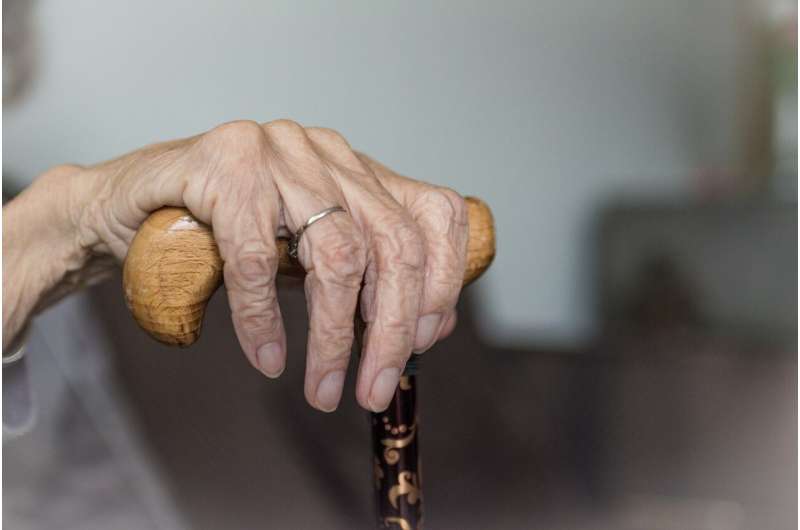Credit: Pixabay/CC0 Public Domain
COVID-19 interrupted or delayed medical treatment for many people who chose to put off elective procedures or couldn't get in to see a specialist.
But new research from the University of Michigan finds another population was affected: Many homebound older adults canceled medically necessary home-based health care services out of fear of getting COVID-19. This caused new or worsening medical conditions for a number of patients, and home-based health care providers reported feeling that they lacked sufficient information and training to advise patients through the process of deciding whether or not to continue care.
The study was published in the Journal of Gerontological Nursing. Sue Anne Bell, assistant professor at the School of Nursing, is the principal investigator.
"One home health care agency representative said their agency's patient load decreased by 38% as a result of patients canceling services," said study first author Jennifer Inloes, a Doctor of Nursing Practice student at the U-M School of Nursing. "It really highlighted the level of fear among patients receiving home-based health care services at the early part of the pandemic."
Both family members and patients canceled services, and the large number of cancelations surprised Inloes.
"I understood why patients might cancel in-person visits or elective surgeries because there are so many potential points of infection associated with office or hospital-based care," she said. "I wasn't prepared to hear about so many patients declining home-based health care services, since home-based health care is a much more controlled interaction with fewer potential points of infection."
Disease management continues to shift toward a home health care model, but there's not much literature on how public health emergencies impact continuity of home health care. To learn more, researchers interviewed 27 Medicare-certified home health providers in eight U.S. counties to better understand older adults' decision making around home-based care service during COVID-19.
The findings emphasize the large role emotion plays in medical decision-making, and challenge the assumption that given enough accurate educational information, patients make rational decisions in their best interests. Inloes said her research highlights the importance of carefully weighing the well-known benefits of home-based health care services with the potential negative consequences of canceling services.
"For example, home-based health care providers are trained in infection control precautions, so the risk of becoming infected with COVID-19 from a provider coming into the home is fairly small," she said. "However, a patient experiencing a preventable refusal-related complication that requires emergency department treatment has now inadvertently increased their risk of COVID-19 exposure due to the larger number of providers, patients and family members in the emergency department vs. the home setting."
It's unknown if more older adults avoided infection by isolating than were harmed by negative health outcomes of refusing care––and the answer to that question isn't black and white, Inloes said. In addition to new or worsening conditions, previous research has found that pandemic-induced isolation also negatively affected older adults, which is an important consideration.
"For some, but certainly not all patients, a home-based health care provider might be their only regular visitor, so we need to consider that aspect when determining the risks and benefits of an individual's decision to cancel care," she said.
The question is not one of right or wrong.
"Palliative care, which is a specialty that I wish more health care providers received training in, discourages framing patient decisions in terms of right or wrong," she said. "As health care providers, our job is to help our patients live as well as possible in accordance with their individual values, belief systems and goals. I know I've helped an individual come to the 'right' decision if they can clearly articulate how the choice they've made, whether it's to continue or cancel care, aligns with those three things."
More information: Jennifer B. Inloes et al, Home-Based Care Provider Perspectives on Care Refusal During the COVID-19 Pandemic, Journal of Gerontological Nursing (2023). DOI: 10.3928/00989134-20221206-02
Journal information: Journal of Gerontological Nursing
Provided by University of Michigan























